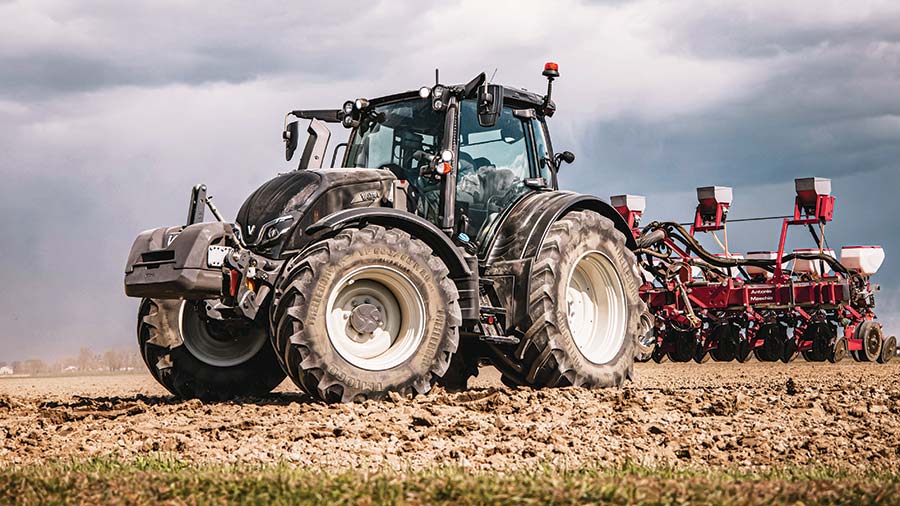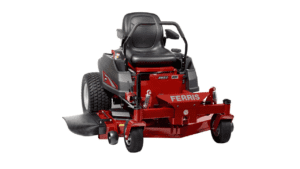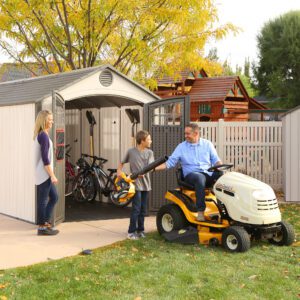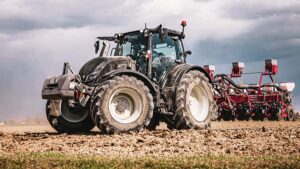
The best tractor for farming is subjective and depends on the specific needs and requirements of the farm. Several factors, such as farm size, terrain, and tasks to be performed, should be considered before choosing the best tractor.
However, John Deere is widely recognized as one of the most reliable and trusted tractor brands, ranking highest in overall loyalty and ownership experience. They offer a range of tractors suitable for various farming purposes, making them a popular choice among farmers.
Additionally, other reputable tractor brands to consider include ACE Tractors, Mahindra Tractors, Sonalika International Tractors, and New Holland Tractors, each offering their own unique features and benefits for farming operations.
Factors To Consider When Choosing A Tractor
When choosing the best tractor for farming, there are several factors to consider. These include the size of your farm, the terrain, the type of tasks you need the tractor for, and your budget. It’s important to research and compare different tractor models to ensure you find the perfect fit for your specific farming needs.
When it comes to choosing the best tractor for farming, there are several factors that need to be taken into consideration. From the size of the farm to the type of farming operations, each factor plays a crucial role in determining the right tractor for your specific needs. Let’s take a closer look at these factors:
Size Of The Farm
The size of your farm plays a significant role in determining the size and capacity of the tractor you need. For smaller farms with limited land area, a compact or subcompact tractor may be suitable. These tractors are easier to maneuver and offer versatility for various tasks such as mowing, landscaping, and light hauling. On the other hand, larger farms require more powerful tractors with higher horsepower and larger implements to efficiently handle heavy-duty tasks like plowing and tilling larger areas.
Types Of Farming Operations
The type of farming operations you engage in also influences the choice of tractor. Different types of farming, such as organic farming, livestock farming, or crop cultivation, require specific features or attachments to optimize productivity. For instance, if you are involved in livestock farming, a tractor with a front-end loader attachment for feeding and cleaning might be necessary. Understanding the specific requirements of your farming operations is essential for selecting a tractor that can meet your needs effectively.
Power And Horsepower
The power and horsepower of a tractor are crucial factors to consider. Horsepower determines the capability of the tractor to perform heavy-duty tasks. Generally, higher horsepower is required for tasks like plowing, tilling, or operating larger implements. However, it is important to strike a balance between power and fuel efficiency to avoid unnecessary expenses. Assessing the power and horsepower requirements based on the tasks you need to perform is crucial for optimal performance and cost-effectiveness.
Transmission Type
The transmission type of a tractor is another important factor to consider. Common types of transmissions include manual, hydrostatic, and power shift. Each transmission type has its own advantages and limitations. Manual transmissions provide the operator with more control but may require more manual effort. Hydrostatic transmissions offer ease of use and smoother operation but may be less fuel-efficient. Power shift transmissions provide rapid and seamless shifting but may be more expensive. Consider the ease of use, efficiency, and cost when selecting the transmission type that suits your needs best.
Fuel Efficiency
Fuel efficiency is an essential consideration for any farmer, as it directly impacts operating costs. Tractors with better fuel efficiency can significantly reduce fuel expenses over time. Look for features such as advanced engine technology, efficient fuel injection systems, and eco-friendly designs. Additionally, consider the type of fuel required for the tractor and availability in your area. Evaluating the fuel efficiency of a tractor before making a purchase can save you money in the long run.
Different Types Of Tractors For Farming
Choosing the right tractor for your farming needs is essential to maximize productivity and efficiency on your farm. With different types of tractors available in the market, each designed for specific tasks and terrain, it can be overwhelming to make a decision. In this article, we will explore the different types of tractors commonly used for farming, including utility tractors, row crop tractors, orchard tractors, garden tractors, and sub-compact tractors. By understanding the features and capabilities of each type, you can determine which tractor is the best fit for your farming operations.
Utility Tractors
Utility tractors are a versatile option for a wide range of farming tasks. These tractors are designed for general-purpose use on medium to large farms and can handle various activities such as plowing, tilling, planting, and hauling. Utility tractors typically have a horsepower range of 45-140 and are equipped with sturdy tires suitable for different terrains. They come with multiple attachment options, making them adaptable to different implements like loaders, mowers, and backhoes. Whether you are cultivating crops or moving heavy loads, utility tractors provide the power and agility you need.
Row Crop Tractors
Row crop tractors are specially designed for row-crop farming, where crops are planted in long, narrow rows. These tractors have a narrow wheelbase and higher ground clearance to navigate between rows without damaging the crops. They are equipped with specialized tire options to minimize soil compaction and facilitate efficient harvesting. Row crop tractors typically have a horsepower range of 110-400, providing the necessary power and precision for tasks like planting, spraying, and harvesting row crops like corn, soybeans, cotton, and wheat.
Orchard Tractors
Orchard tractors are specifically designed for orchard and vineyard management. With a compact size and low profile, these tractors can maneuver easily between tree rows and tight spaces. Orchard tractors often have specialized tires to prevent soil damage and minimize compaction. They are equipped with narrow-front axles and advanced steering systems for better turning radius and maneuverability. With a horsepower range of 40-120, orchard tractors provide the power and agility needed for tasks like mowing, pruning, and spraying in orchards and vineyards.
Garden Tractors
Garden tractors are smaller-sized tractors suitable for small farms, residential properties, and landscaping tasks. With a horsepower range of 20-30, garden tractors are compact and easy to maneuver in tight spaces. These tractors come with a variety of attachments like mowers, tillers, and snow blowers, making them ideal for maintaining gardens, lawns, and small fields. Garden tractors offer versatility and convenience for tasks like grass cutting, ground leveling, and light hauling.
Sub-compact Tractors
Sub-compact tractors are the smallest category of tractors, designed for small farms, landscaping, and hobby farming. With a horsepower range of 15-25, these tractors are compact, lightweight, and agile. Sub-compact tractors are perfect for small-scale tasks like gardening, landscaping, and light hauling. They can be easily maneuvered in tight spaces and are often equipped with attachments like loaders, backhoes, and mowers. Whether you have a small garden or a hobby farm, sub-compact tractors offer the versatility and maneuverability required for various tasks.
Choosing the right tractor for your farming operations depends on factors such as the size of your farm, the type of crops you grow, the terrain, and the tasks you need to perform. Assessing your needs and understanding the capabilities of different types of tractors will help you make an informed decision. Consider consulting with a trusted equipment dealer or agricultural expert for personalized advice. The right tractor will be an invaluable asset on your farm, increasing productivity and ultimately contributing to your success.
Best Tractor Brands For Farming
Looking for the best tractor for farming? Look no further! John Deere ranks highest among tractor brands for overall loyalty, making it a reliable choice for all your agricultural needs. Trust the brand that offers the best ownership experience and highest owner loyalty.
John Deere
When it comes to farming, John Deere is a household name and for good reason. This American brand has been delivering top-quality tractors for decades. With a reputation for durability and reliability, John Deere tractors are trusted by farmers around the world. Their wide range of models caters to the needs of both small-scale and large-scale farming operations. From compact utility tractors to high-horsepower machines, John Deere offers a solution for every farming need.
Massey Ferguson
Massey Ferguson is another renowned brand in the agricultural industry. With a legacy dating back to the 19th century, Massey Ferguson has a rich history of manufacturing reliable and innovative tractors. Their tractors are known for their excellent performance, fuel efficiency, and versatility. Massey Ferguson offers a wide range of tractors that are suitable for different farming applications, making it a popular choice among farmers.
Kubota
Kubota tractors have gained a strong foothold in the farming community due to their compact size and powerful performance. These Japanese tractors are designed to excel in small to mid-size farming operations. Kubota’s tractors are known for their superior build quality, advanced features, and ease of operation. Whether you need a compact tractor for your hobby farm or a utility tractor for your agricultural business, Kubota has a range of models to meet your requirements.
New Holland
New Holland is a brand that combines tradition with innovation. With a history dating back to 1895, New Holland has become a global leader in agricultural equipment, including tractors. Their tractors are known for their cutting-edge technology, advanced features, and exceptional performance. New Holland offers a wide range of tractors that cater to diverse farming needs, from compact tractors to high-horsepower machines.
Case Ih
Case IH is a brand that focuses on delivering power and efficiency to farmers. Their tractors are designed to handle heavy-duty tasks and are built to withstand challenging farming conditions. Case IH tractors are known for their reliability, durability, and high performance. With a wide range of models available, Case IH offers tractors that meet the needs of farmers of all scales, ensuring they can get the job done efficiently.

Credit: www.amazon.com
Features And Attachments To Look For
When it comes to choosing the best tractor for farming, it’s essential to consider the features and attachments that will enhance your productivity and efficiency. The right combination of features and attachments can make a significant difference in your farming operations. In this section, we will explore some crucial features and attachments to look for when selecting a tractor for farming.
Loader And Bucket
A loader and bucket attachment is an important feature to consider when choosing a farming tractor. This attachment allows you to lift and transport heavy loads, such as hay bales, gravel, and soil. It provides versatility and makes tasks like loading materials onto trailers or cleaning up debris much easier.
Three-point Hitch
The three-point hitch is another essential feature to consider. It allows you to attach and detach various implements easily. With a three-point hitch, you can connect implements such as plows, cultivators, and mowers, enabling you to perform a wide range of farming tasks efficiently.
Pto (power Take-off)
A tractor equipped with a power take-off (PTO) is valuable for tasks that require machinery to be driven by the tractor’s engine. The PTO provides power to implement such as rotary tillers, balers, and wood chippers. It eliminates the need for a separate engine and enhances convenience and productivity in farming operations.
Cab And Comfort
When spending long hours on the tractor, comfort is essential. Look for a tractor with a comfortable and ergonomic cab that provides ample space, adjustable seating, and good visibility. A comfortable and well-designed cab will reduce operator fatigue, increase productivity, and improve overall safety.
Hydraulic System
The hydraulic system is a critical component of a farming tractor. It powers various attachments and implements, allowing for efficient and precise control. Look for a tractor with a reliable and powerful hydraulic system that can handle the demands of your farming activities.
In conclusion, when selecting the best tractor for farming, features and attachments such as a loader and bucket, three-point hitch, PTO, cab and comfort, and hydraulic system should be considered to maximize productivity, efficiency, and operator comfort. Each of these features plays a crucial role in enhancing the capabilities and performance of a farming tractor, making it a valuable investment for your agricultural operations.
Maintenance And Care For Tractors
Regular maintenance and care are essential for keeping your tractor in optimal condition and ensuring its longevity and performance on the farm. By following a routine servicing and inspection schedule, cleaning and lubricating key components, properly maintaining tires and batteries, and storing the tractor correctly, you can maximize its efficiency and prevent costly breakdowns. In this section, we will explore the importance of each aspect of tractor maintenance and provide some valuable tips to help you keep your tractor running smoothly.
Regular Servicing And Inspections
Regular servicing and inspections play a crucial role in identifying and addressing potential issues before they become major problems. It is recommended to follow the manufacturer’s guidelines and schedule routine maintenance tasks such as oil and filter changes, air filter replacements, and belt inspections. These routine checks will ensure that all the essential components of the tractor are in good working condition and reduce the risk of unexpected breakdowns.
Cleaning And Lubrication
Cleaning and lubricating your tractor is not just about its appearance; it is also a crucial aspect of maintaining its functionality. Regularly remove dirt, debris, and grime from the tractor’s exterior and engine components to prevent corrosion and overheating. Lubricating various moving parts, such as hinges, joints, and bearings, will minimize wear and tear and ensure smooth operation. Be sure to use the appropriate lubricants recommended by the manufacturer for each specific application.
Tire And Battery Maintenance
Proper tire and battery maintenance are essential for the overall performance of your tractor. Inspect the tires regularly for wear and tear, check the tire pressure, and ensure they are properly inflated to optimize traction and fuel efficiency. Additionally, check the battery terminals for corrosion and clean them if necessary. Regularly test the battery’s charge level and consider investing in a battery charger or maintainer to prevent battery failure.
Storage And Protection
When it comes to storing your tractor, it is important to choose a suitable location and protect it from the elements. Store the tractor in a dry, well-ventilated area to prevent rust and corrosion. Cover it with a waterproof tarp or tractor cover to shield it from dust, moisture, and UV rays. Before storing, ensure all fluids are topped up, and consider using a fuel stabilizer to prevent fuel deterioration during prolonged periods of inactivity.
By following these maintenance and care practices for your tractor, you can ensure its reliability and longevity, which ultimately translates to better farming efficiency and productivity. Implementing a regular maintenance routine will not only save you time and money in the long run but also enhance your overall farming experience.
Frequently Asked Questions For Which Is The Best Tractor For Farming?
What Is The Most Reliable Farm Tractor?
The most reliable farm tractor is John Deere. It has the highest rankings for overall loyalty, best ownership experience, durability, and owner loyalty among compact, mid-size, and full-size tractors. John Deere is the top choice for tractor owners.
What Is The Number 1 Selling Tractor In The Usa?
The number 1 selling tractor in the USA is John Deere.
Which Tractor Is Best For All Purpose?
The best all-purpose tractor depends on your specific needs. Consider factors like size, power, attachments, and brand reputation. John Deere and Mahindra are popular choices for their reliability and versatility. It’s important to assess your requirements and budget before making a decision.
What Is The Best Farm Tractor Ever Built?
The John Deere Model B, Farmall Model M, John Deere Model A, and Allis-Chalmers Model WC are some of the best farm tractors ever built.
Conclusion
Choosing the best tractor for farming is crucial for the success of your small farm or property. With various options available on the market, it’s important to consider factors such as size, power, versatility, and affordability. Whether you prefer John Deere, Mahindra, or other top brands, make sure to prioritize overall reliability and durability.
By selecting the right tractor, you can maximize productivity and efficiency on your farm. Happy farming!






